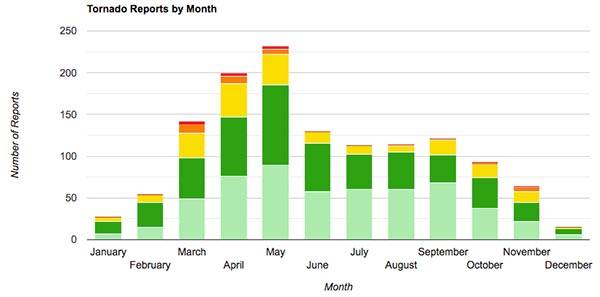DukeALERT Test on March 20 to Focus on Tornado Safety
Community members encouraged to register for notification systems

Earlier this month, a tornado in Alabama ripped a path of destruction about a mile wide and 24 miles long.
The storms that spawned the tornados that killed 23 people in eastern Alabama are more common during the months of March, April and May in North Carolina.
“In the spring we typically have warm, moist air and southern winds that set up the ingredients for those strong thunderstorms that can create tornados,” said Nick Petro, warning coordination meteorologist with the National Weather Service office in Raleigh.
That is why Duke officials are asking students, faculty and staff to review tornado procedures and identify shelter locations as part of its DukeALERT test on March 20.
The test will begin at 10 a.m. and will include activation of emergency communications such as text message, email, website, digital signs, and the outdoor warning sirens. The siren tone is considered an "all hazards" alert to get the community's attention and will be activated for any type of emergency that requires people to take shelter immediately.

Petro said that forecasters look for warm air masses on the ground with cold air aloft and increasing winds in the atmosphere with rotating updrafts. Tornado watches are issued when conditions could produce a tornado, and tornado warnings are issued when a tornado has been spotted or indicated on radar.
“Our goal is to provide at least 13 minutes of warning before a tornado touches down,” he said. “People often like to get visual confirmation of weather reports, but when there is a tornado warning, people should immediately drop what they are doing and seek shelter. Going to the window to check could mean the difference between surviving or not.”
Emergency text messages can quickly notify the Duke community when a tornado warning is issued. Students are automatically enrolled in emergency text messaging during class registration, but faculty and staff must register for DukeALERT text messages through the Duke@Work self-service website.
Duke community members are also encouraged to download Duke's LiveSafe mobile safety app for real-time, two-way communication with Duke Police. LiveSafe is available for free download through Apple and Android app stores.
Note: Post a flier in your area to help promote the test and encourage faculty and staff to register for DukeALERT text messaging.